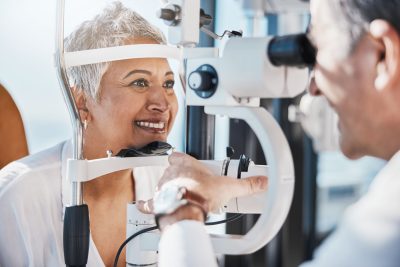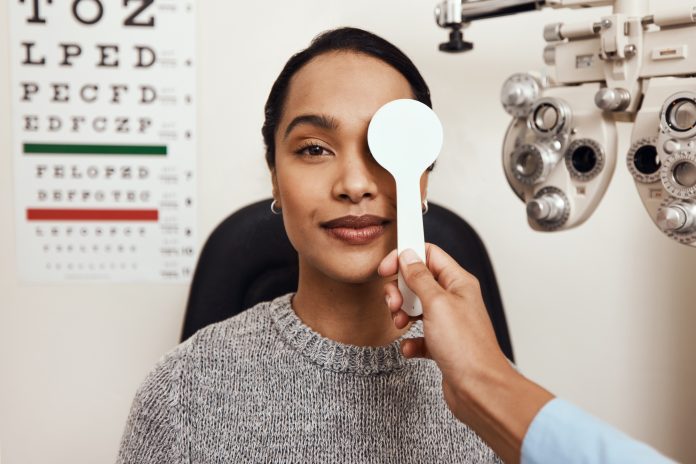Regular eye examinations are integral to overall health maintenance, yet it is often undervalued. They do not only serve as a mere procedure to update eyeglasses or contact lens prescriptions but are crucial for preventative healthcare.
They are the cornerstone of ocular health, akin to routine dental check-ups or annual physical exams. Hence, it is essential to visit reputable clinics like Eye Doctor Round Rock that can provide top-notch eye care services and ensure your vision’s well-being.
If you still need convincing, read on to understand why everyone needs these assessments and how frequently they should be scheduled.
Why Do You Need Regular Eye Exams?
Eye exams play a crucial role in maintaining overall health. Here are some reasons why regular eye examinations are indispensable for your health, vision quality, and early disease detection.
- Detection Of Eye Diseases
The most immediate and apparent benefit of regular eye exams is the early detection of eye diseases. Conditions such as glaucoma, macular degeneration, and cataracts often present little to no symptoms in their early stages. As such, without regular eye exams, these diseases could progress unnoticed until they cause significant vision loss or other complications.
Regular eye exams can identify these conditions at an early stage, increasing the effectiveness of treatment and the likelihood of preserving vision. For example, glaucoma, often termed the “silent thief of sight,” can be controlled with medication if detected early, significantly reducing the risk of irreversible blindness.

- Systemic Disease Detection
Routine eye examinations can also serve as a tool for systemic disease detection. Interestingly, many systemic diseases, such as diabetes and hypertension, can manifest in the eyes before they do elsewhere in the body. Certain types of cancer can also show early signs in the eyes.
For instance, diabetes may result in a disorder called diabetic retinopathy that impacts the blood vessels in the retina, the sensitive tissue at the rear of the eye. Likewise, hypertension could lead to alterations in the blood vessels of the retina, a phenomenon referred to as hypertensive retinopathy.
Regular eye exams can detect these changes, leading to early diagnosis and management of these systemic conditions.
- Vision Correction And Eye Strain Prevention
Lastly, a crucial benefit of regular eye exams is ensuring the accuracy of a person’s vision correction prescription. This is especially important for those who wear eyeglasses or contact lenses. Wearing corrective lenses with an outdated prescription can lead to problems such as eye strain, headaches, blurred vision, and decreased productivity.
Regular eye exams ensure the prescription matches the individual’s current vision needs. An eye care professional can adjust the prescription as needed, reducing the risk of eye strain and other complications.
Moreover, regular exams can also detect conditions like astigmatism, presbyopia, and myopia, which can affect a person’s vision and comfort.
How Often Should You Get An Eye Exam?
The frequency of your eye exams depends on various factors, including age, overall health, and any existing eye conditions. Here are some general guidelines:
- Infants And Toddlers (0-2 Years)
The American Academy of Ophthalmology advises newborns to undergo an initial eye health screening before hospital discharge. This preliminary screening can identify congenital eye conditions that could cause long-term vision issues if untreated. After the initial screening, regular vision checks should be incorporated into well-child visits.
- Preschool Children (3-5 Years)
Between the ages of 3 to 5 years, at least one comprehensive eye examination is crucial to ensure proper development of the visual system. This exam can identify common childhood eye conditions such as amblyopia (lazy eye) and refractive errors. It is important to note that early detection and treatment can prevent these conditions from hindering a child’s learning and development.
- School-age Children (6-18 Years)
Annual eye examinations are essential for school-age children, as vision problems can significantly affect academic performance. These exams monitor changes in vision often associated with growth spurts. Regular check-ups also help prevent digital eye strain resulting from increased screen use.
- Adults (19-40 Years)
Adults should schedule a comprehensive eye examination every two years unless otherwise advised by an ophthalmologist. These regular exams allow early detection of adult-onset eye conditions and ensure accurate vision correction. Regular exams can also detect signs of eye strain or damage from lifestyle factors.
- Older Adults (41-60 Years)
A comprehensive eye examination every two years is recommended for older adults or more frequently if risk factors exist. Regular examinations can detect and manage conditions like presbyopia and cataracts. Additionally, eye exams can monitor the impact of systemic conditions on eye health.
- Seniors (61 And Above)
Annual eye examinations are recommended for seniors due to an increased risk of age-related eye conditions. Regular check-ups facilitate the prompt diagnosis and treatment of conditions like glaucoma and age-related macular degeneration. Visits also assess the need for changes in vision correction.
- High-Risk Groups
High-risk groups, such as those with a family history of eye disease, chronic diseases affecting eye health, or past eye surgery, may require more frequent examinations. Identifying high-risk groups early through comprehensive eye exams enables proactive management and timely referral to the best laser eye surgeon for tailored treatment plans. Appointments provide an opportunity for patients to discuss any changes in vision or symptoms with their eye care professional.
Final Thoughts
Taking care of your eyes is fundamental to maintaining good overall health. Regular eye exams are vital for everyone, regardless of age or visual acuity. By partnering with a reputable eye doctor, you can ensure your eye health is in the best hands.
Remember, early detection of eye conditions, vision correction, and monitoring eye health are all reasons why regular eye exams are essential. So, don’t delay – schedule your next eye exam today and invest in the future of your vision.



















